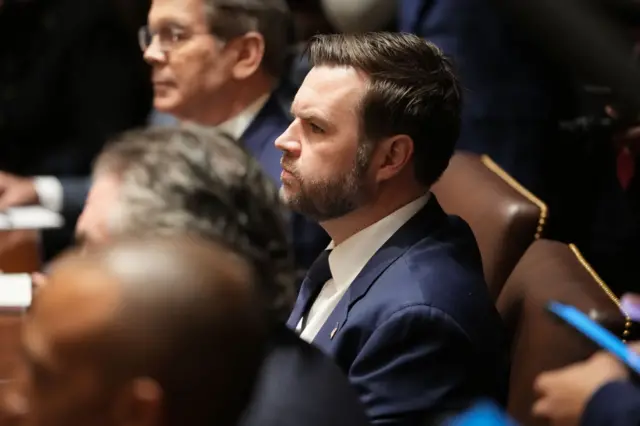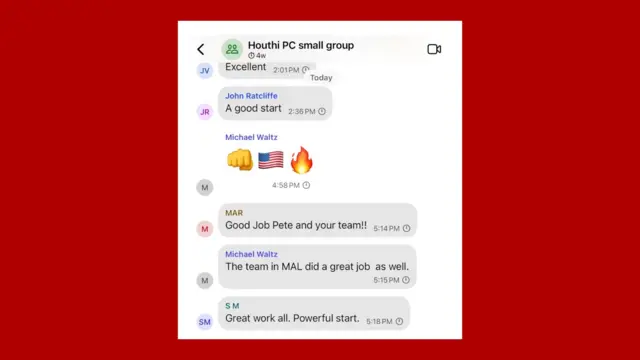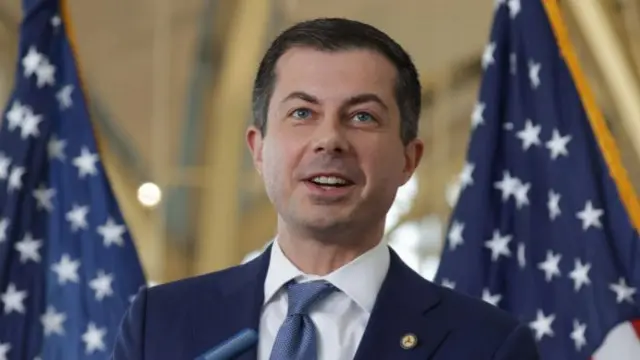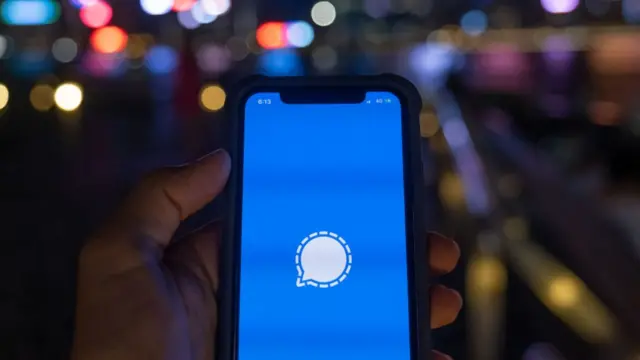JD Vance went against Trump in released messagespublished at 01:52 GMT 25 March
 Image source, Getty Images
Image source, Getty ImagesThe vice-president pushed back against the planned attack, expressing concern over the prospect of "bailing Europe out"
In the messages revealed by the Atlantic one of the most notable things was Vice President JD Vance's disagreement with Trump's Yemen strategy.
Vance argued, in the messages, the administration didn't need to rush to attack Yemen and he experienced concern over what should be expected of the Europeans and others for the US doing this.
“3% of US trade runs through the Suez. 40% of European trade does. There is a real risk that the public doesn’t understand this or why it’s necessary. The strongest reason to do this is, as POTUS said, to send a message,” Vance reportedly wrote in a message.
“I am not sure the president is aware how inconsistent this is with his message on Europe right now," Vance says in a later message. "There’s a further risk that we see a moderate to severe spike in oil prices. I am willing to support the consensus of the team and keep these concerns to myself. But there is a strong argument for delaying this a month, doing the messaging work on why this matters, seeing where the economy is, etc.”
After pushback from other members of the Trump administration, Vance appears to address Defence Secretary Pete Hegseth, saying "If you think we should do it let's go".
"I just hate bailing Europe out again," Vance writes.








